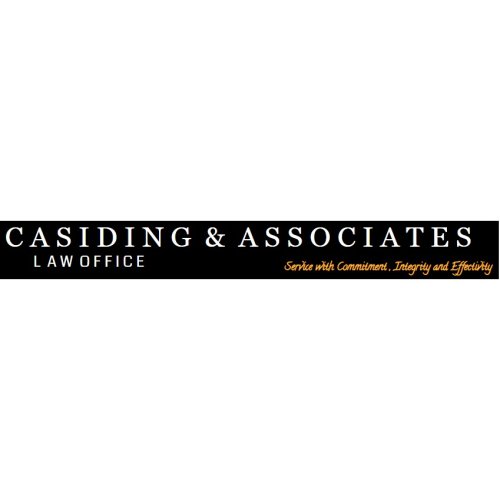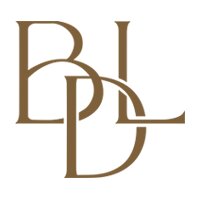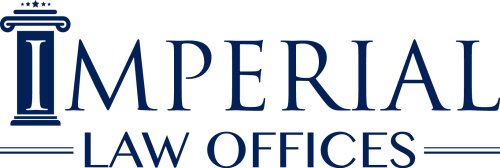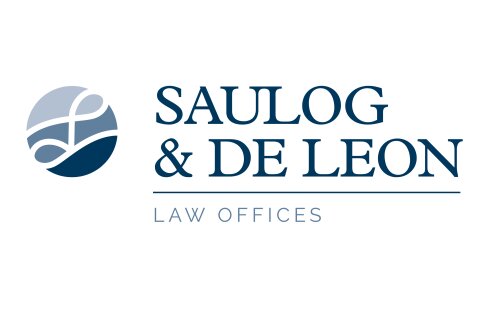Best Banking & Finance Lawyers in Makati City
Share your needs with us, get contacted by law firms.
Free. Takes 2 min.
List of the best lawyers in Makati City, Philippines
Philippines Banking & Finance Legal Questions answered by Lawyers
Browse our 2 legal questions about Banking & Finance in Philippines and read the lawyer answers, or ask your own questions for free.
- Is an OFW /expatriate in UAE with an existing bank loan can have a travel ban order in our country?
- I was an OFW in UAE and was included in a company mass termination. I haven't finished my bank loan and my computed gratuity was not enough to settle my loan so upon getting the email I exited UAE to another country & after a year went back to Phil.... Read more →
-
Lawyer answer by Islaw - Expert Lawyers
Hi, there may be a helpful answer of your querry. Unpaid personal loans or credit card debt (even if it's from a UAE bank) are considered civil cases, not criminal offenses under international law. Interpol is usually involved only for...
Read full answer - Is it really possible to collect a debt thru filing a case?
- I am planning a case against a friend who has multiple swipes on my credit card but failed to pay me. Initially, she was a good payer but something happened and she stopped paying me. The total number of swipes was a huge amount. I also have an investment in... Read more →
-
Lawyer answer by Starlion Legal
What country are you in? Yes, you can make a claim in court for this in a small claims court.
Read full answer
About Banking & Finance Law in Makati City, Philippines
Banking and Finance Law refers to the regulations governing the operation of financial institutions, providing legal guidelines for transactions, and protecting consumer rights. Makati City, as the financial hub of the Philippines, has a highly regulated Banking and Finance sector primarily supervised by the Bangko Sentral ng Pilipinas (BSP) in accordance with the provisions of the General Banking Law of 2000, the New Central Bank Act and other pertinent laws.
Why You May Need a Lawyer
Legal assistance can be valuable in a variety of situations related to banking and finance. Disputes on financial contracts, claims of fraudulent transactions, issues related to loans and securities, bank mergers and acquisitions, conflicts with investment entities or concerns over regulatory compliance are scenarios where you might need a lawyer. Having legal counsel can help protect your rights, navigate complex laws, provide representation during litigations, and ensure that transactions adhere to legal guidelines.
Local Laws Overview
The General Banking Law of 2000 governs the operation of all banks in the Philippines, including those in Makati City. It outlines regulations concerning bank formations, administration, powers, and liabilities. The New Central Bank Act regulates the functioning of the BSP and its supervision over the Philippine monetary system. Other relevant laws include the Securities Regulation Code, which governs securities and investment ventures, and the Financial Rehabilitation and Insolvency Act, which provides the legal framework for financial rehab and insolvency.
Frequently Asked Questions
1. What are the general guidelines for opening a bank account in Makati City?
Opening a bank account in Makati City requires two valid identifications, proof of address, a reference from an account holder at the same bank (in some cases), and an initial deposit. Non-resident foreigners might also need to provide additional documents such as a work permit.
2. Can foreign investors freely invest in the Philippine banking sector?
Yes, with the passage of Republic Act No. 10641, foreign banks are allowed to operate in the country either by establishing a wholly-owned subsidiary or by acquiring shares in an existing Philippine bank.
3. What is the role of the Bangko Sentral ng Pilipinas?
The BSP, or the Central Bank of the Philippines, is tasked with maintaining monetary stability by regulating the country's monetary, financial, and banking systems.
4. Is online banking widely accepted in Makati City?
Yes, most banks operating in Makati City offer online banking services. This includes funds transfer, bill payments, balance inquiries, and other transactions.
5. What steps can be taken in case of fraudulent banking transactions?
Victims of fraudulent transactions should immediately report the incident to their bank. A legal complaint can also be filed with the National Bureau of Investigation's Cybercrime Division.
Additional Resources
The official websites of Bangko Sentral ng Pilipinas and the Securities and Exchange Commission offer valuable resources about banking and finance laws, recent law amendments, and other relevant information. It also may be helpful to consult related publications of the International Monetary Fund and World Bank.
Next Steps
If you need legal assistance related to banking and finance, it is advisable to contact a lawyer or law firm specializing in Banking and Finance Law. Prepare all necessary documents and carefully narrate your concern to facilitate a more efficient legal service. You may also reach out to local legal clinics or government agencies for advice or dispute resolution mechanisms.
Lawzana helps you find the best lawyers and law firms in Makati City through a curated and pre-screened list of qualified legal professionals. Our platform offers rankings and detailed profiles of attorneys and law firms, allowing you to compare based on practice areas, including Banking & Finance, experience, and client feedback.
Each profile includes a description of the firm's areas of practice, client reviews, team members and partners, year of establishment, spoken languages, office locations, contact information, social media presence, and any published articles or resources. Most firms on our platform speak English and are experienced in both local and international legal matters.
Get a quote from top-rated law firms in Makati City, Philippines — quickly, securely, and without unnecessary hassle.
Disclaimer:
The information provided on this page is for general informational purposes only and does not constitute legal advice. While we strive to ensure the accuracy and relevance of the content, legal information may change over time, and interpretations of the law can vary. You should always consult with a qualified legal professional for advice specific to your situation.
We disclaim all liability for actions taken or not taken based on the content of this page. If you believe any information is incorrect or outdated, please contact us, and we will review and update it where appropriate.
Browse banking & finance law firms by service in Makati City, Philippines
Makati City, Philippines Attorneys in related practice areas.
















